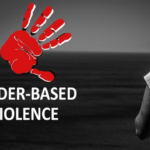
Nearly half of women in some districts across Ghana are exposed to domestic violence, with the Central Region emerging as the country’s highest-risk area. This is according to the latest District-Level Small Area Estimation findings released by the Ghana Statistical Service (GSS), based on data from the 2022 Ghana Demographic and Health Survey and the 2021 Population and Housing Census.
The Central Region recorded the highest prevalence of physical violence at 44.6%, followed by Savannah (42.9%) and Volta (40.2%).
The Volta Region also posted the highest levels of sexual violence at 22.3%, significantly above the national pattern. It was followed by the Central and Savannah Regions at 19.6% each, while the North East Region recorded the lowest incidence at 5.2%.
The analysis reveals extreme district-level disparities. Sawla-Tuna-Kalba in the Savannah Region recorded the most alarming figure nationwide, with 61.9% of women aged 15–49 estimated to have experienced at least one form of domestic violence — physical, emotional or sexual.
In contrast, districts in Bono, Bono East, Upper West and North East Regions recorded far lower levels of physical violence, some falling below 25%, underscoring significant protection gaps across the country.
The GSS report emphasises that protecting women in high-risk areas requires a deliberate shift toward district-specific interventions, particularly in the Central, Volta and Savannah Regions where prevalence is most severe.
It stresses the need to strengthen key institutions such as the Domestic Violence and Victims Support Unit (DOVVSU), family courts and district gender desks, urging that they be adequately staffed and resourced to respond effectively to rising cases.
The Service further recommends that the government integrate these new district estimates into local planning and budgeting processes to ensure that resources and interventions target the communities at highest risk.
Additionally, the GSS calls for deeper collaboration with traditional and religious leaders to challenge entrenched social norms that fuel domestic violence and discourage reporting.



